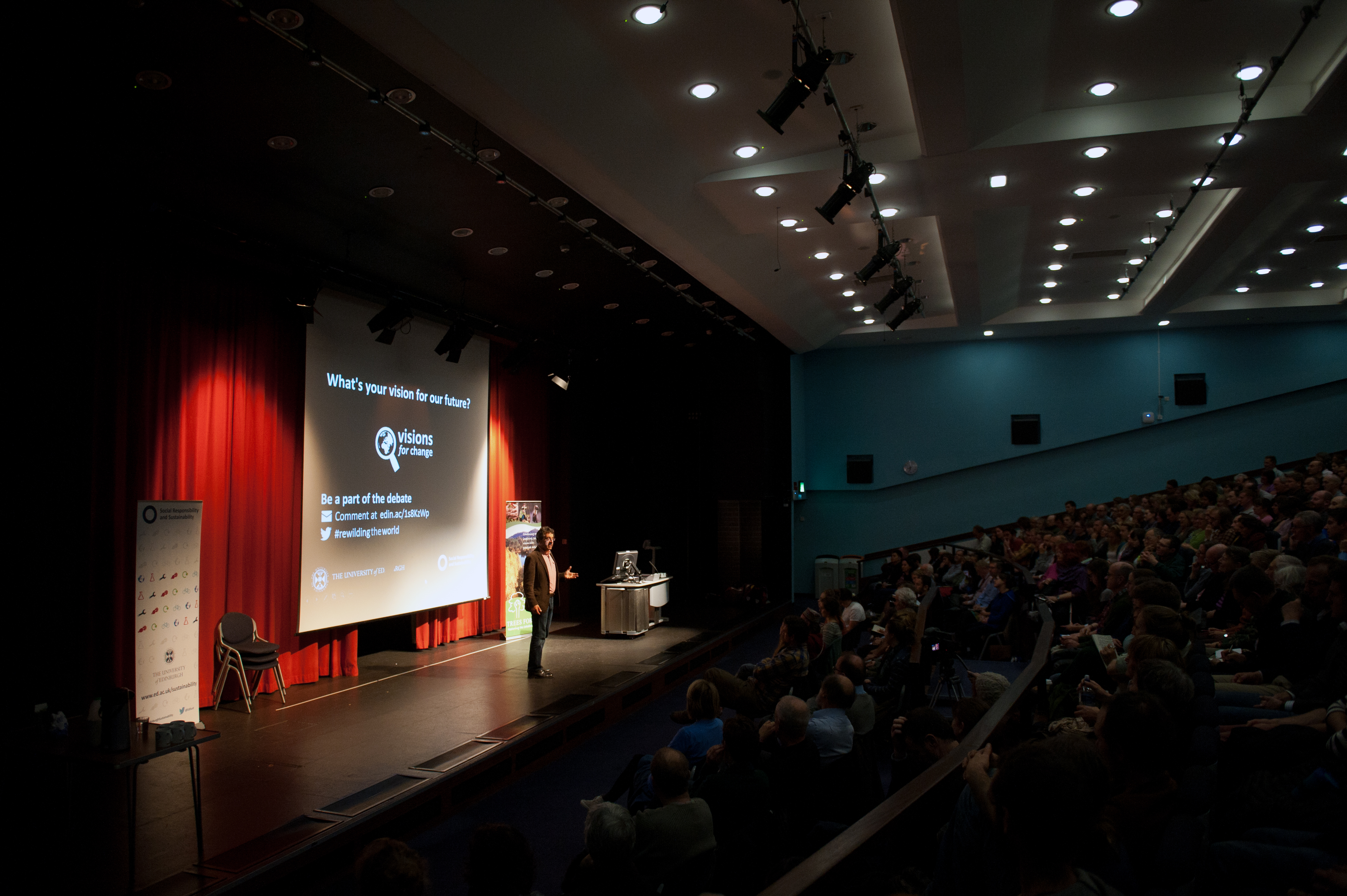Rewilding the World

Rewiliding the World put George Monbiot, environmental and political journalist, alongside Alan Featherstone, the founder and Executive Director of conservation charity Trees For Life. They provided a balance of persuasive and engaging rhetoric, and, importantly, sound empirical evidence to back it up.
Chaired by Janet Fisher, one of the University’s Chancellor’s Fellows, George Monbiot began the event expounding the agenda he outlines in his book ‘Feral’, speaking for the rewilding of the land, the sea and human life. Monbiot criticises the ecologically wonky lens through which we put conservation in the UK.
This has led to a situation where we preserve nature “like a jar of pickles” in a static bubble, free from the apex predators such as wolves and lynx, and herbivorous megafauna that would have been part of UK ecosystems centuries ago. Alan Featherstone’s contribution built with more ecological detail on how our conservation culture has veered towards preserving ecological states that should be allowed to change. For example, heather moorland is a successive habitat that should ultimately transform into forest, but instead, we guard it intact.
Both speakers made it clear that our approach to conservation could stand some change and it would be to the benefit of nature, but what does that mean for humans? If large swathes of land are left to rewind, how does that affect our food supply? Would a stronger drive for rewilding lead to land grabs in the way that biofuels have done? Would it be dangerous to us to have lynx wandering around our hills? Monbiot and Featherstone alike were clear that rewilding does not have to be a misanthropic concept. They argued that rewilding could be done within determined sections of land, and must always be done collaboratively with surrounding human communities. Indeed, part of the current disjunct between society and wild nature is due to alienation from the land itself, which it is important to overcome if we are to act in the interests of all species, including our own.
So what next? Monbiot’s argument for rewilding was undeniably conceptual, speaking to our “ecological boredom” in our small cell-like lives in the West, urging us to re-engage with a force more powerful and exciting and somehow real than we encounter day to day.
In terms of action, Featherstone’s talk was more geared towards practical suggestion, as you might expect, given his position in Trees For Life, a charity whose vision is to restore the Caledonian Forest to the Scottish Highlands. He showed some examples of where pieces of work have been done, and it is possible to volunteer as part of this effort.
Academically, we within the University can also contribute with scientific studies on rewilding and any possible implementation, as well as our social, political and individual interactions with nature and wilderness across the humanities and social science subjects.
Overall, this event raised some interesting questions around a topic that is of increasing importance, as human influence through industry and unsustainable development continues to eradicate species at an alarming rate, as exposed in the recent WWF report stating that 50% of wild animals have been lost in the last 40 years. While rewilding is not a fix-all solution to our global challenges, from the discussion at this event, it was clear that it could be part of a suite of solutions that can make a genuine difference.
Photos by Gareth Easton.







Recent comments